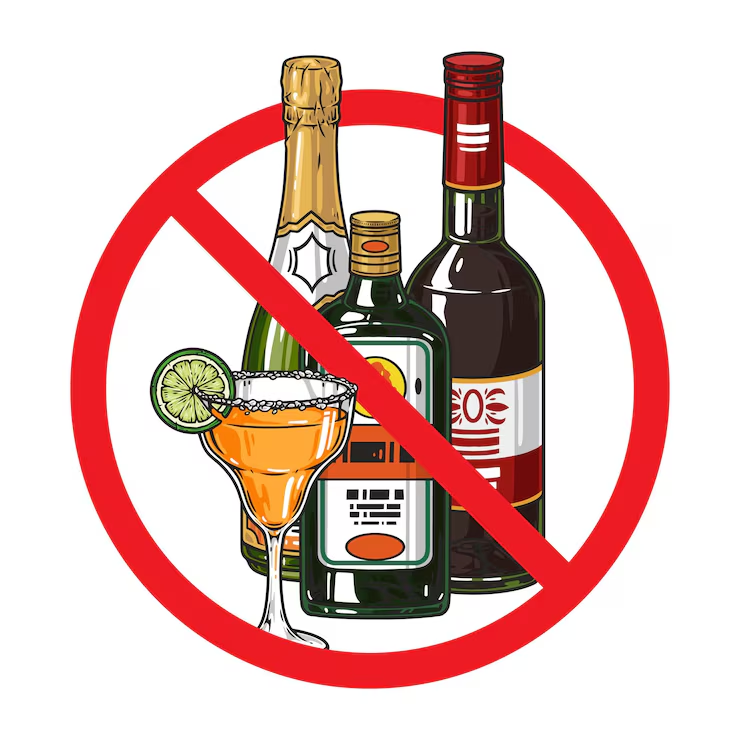In today’s health-conscious world, boosting the immune system has become more important than ever. A strong immune system not only helps fight off infections like the common cold or flu but also plays a vital role in preventing chronic diseases and promoting overall wellness. While there is no magic pill for immunity, a combination of lifestyle choices, nutrition, and habits can powerfully enhance your body’s natural defense mechanisms.
A healthy immune system is your body’s first line of defense against illness, infection, and chronic disease. In today’s world—where stress, pollution, poor nutrition, and lack of sleep are common—keeping your immune system strong is more important than ever. This comprehensive guide delves into the essentials of immune system boosters, offering you a practical roadmap to enhance your body’s natural defenses.
Understanding how your immune system works is the first step. It’s a complex network of organs, cells, and proteins designed to detect and fight harmful invaders like bacteria, viruses, and toxins. When functioning optimally, it protects you from illness and helps your body heal faster.
Fortunately, there are proven, natural strategies you can adopt to strengthen it. From nutrient-rich diets and regular physical activity to proper sleep, hydration, stress management, and gut health, these immune system boosters play a critical role in enhancing your overall wellness. We also explore the importance of sunlight for vitamin D production, as well as herbal supplements like elderberry and turmeric.
By incorporating these top 8 evidence-based immune system boosters into your lifestyle, you’ll not only reduce the risk of getting sick but also build a stronger, more resilient body for years to come.
Understanding the Immune System

The immune system is a complex network of cells, tissues, and organs that work together to protect the body against harmful invaders like bacteria, viruses, fungi, and toxins. The primary components include:
- White blood cells (leukocytes): These cells are the soldiers of the immune system, detecting and destroying pathogens.
- Lymph nodes and spleen: Filter harmful substances and house immune cells.
- Bone marrow: Produces immune cells.
- Thymus: Where T-cells mature.
- Skin and mucous membranes: Act as physical barriers.
The immune system relies on a sophisticated communication network, and one of its key messengers is a group of proteins called cytokines. These small signaling molecules play a vital role in regulating immunity, inflammation, and cell communication. When functioning properly, cytokines help direct immune cells to infection sites, initiate healing, and maintain immune balance.
However, an imbalance—either too much or too little cytokine activity—can lead to chronic inflammation or a weakened immune response. Understanding the role of cytokines is essential when exploring effective immune system boosters, as many natural remedies aim to support and balance this vital signaling process.
When the immune system is compromised or weakened, the body becomes more susceptible to illness. That’s where immune system boosters come in.
Why You Need Immune System Boosters
Modern lifestyle factors like poor diet, chronic stress, lack of sleep, and exposure to environmental toxins can suppress immune function. Supporting your immune system isn’t about “supercharging” it but about helping it work optimally to defend and repair the body.
Effective immune system boosters improve resilience, reduce the severity and duration of infections, and contribute to long-term health.
Let’s explore the top 8 evidence-based strategies to boost your immunity naturally.
Tip 1: Eat a Nutrient-Rich Diet (Immune System Boosters)
One of the most effective immune system boosters is what you put on your plate. Your body relies on nutrients to produce and activate immune cells. Key vitamins and minerals include:
- Vitamin C (citrus fruits, bell peppers, strawberries): Supports white blood cell production.
- Vitamin D (fatty fish, fortified dairy, sun exposure): Regulates immune responses.
- Zinc (pumpkin seeds, lentils, meat): Crucial for immune cell communication.
- Vitamin A (carrots, sweet potatoes, spinach): Maintains mucosal barriers and skin integrity.
- Probiotics (yogurt, kefir, fermented foods): Balance gut microbiota, which houses 70% of your immune system.
Anti-inflammatory foods like garlic, turmeric, ginger, and green tea also provide antioxidants that reduce cellular damage and inflammation.
📌 Quick Tip: Aim to fill half your plate with colorful fruits and vegetables every meal for a steady stream of immune-supporting nutrients.
Tip 2: Prioritize Quality Sleep

Sleep is when your body repairs itself and produces cytokines—molecules that help fight infection and inflammation. Chronic sleep deprivation reduces immune cell activity and increases inflammation.
- Adults need 7–9 hours of uninterrupted sleep.
- Poor sleep can impair antibody production after vaccines.
- Sleep enhances the production of T-cells and natural killer cells.
Sleep hygiene practices: (Immune System Boosters)
- Stick to a consistent sleep schedule.
- Avoid blue light (screens) 1–2 hours before bed.
- Create a cool, dark, quiet sleep environment.
📌 Quick Tip: Sip on herbal teas like chamomile or lemon balm before bed to calm your nervous system and promote deeper sleep.
Tip 3: Stay Hydrated
Water is vital for immune function. It helps transport nutrients to cells, flush toxins from the body, and support lymph production (a fluid that carries immune cells throughout your body).
Dehydration can slow down the immune response and reduce energy levels.
- Aim for 8–10 glasses of water a day.
- Increase fluid intake when you’re ill, exercising, or in hot weather.
- Include hydrating foods like cucumber, watermelon, and oranges.
📌 Quick Tip: Carry a reusable water bottle and infuse your water with immune-boosting ingredients like lemon, mint, or berries for extra benefits.
Tip 4: Move Your Body Regularly
Physical activity is one of the most natural immune system boosters. Exercise promotes circulation, reduces stress hormones, and increases the production of immune-supportive compounds like BDNF (brain-derived neurotrophic factor).
Benefits of exercise:
- Mobilizes white blood cells and antibodies.
- Reduces inflammation.
- Improves sleep quality and stress resilience.
Recommended exercise: (Immune System Boosters)
- 30 minutes of moderate exercise (like brisk walking) 5 times per week.
- Yoga, dancing, swimming, and strength training are all great options.
📌 Quick Tip: Don’t overtrain! Excessive, intense exercise without adequate recovery can suppress immunity temporarily.
Tip 5: Manage Stress Levels
Chronic stress leads to prolonged production of cortisol, a hormone that suppresses immune activity. It weakens your body’s ability to fight infections and increases inflammation.
Effective stress management tools:
- Meditation and mindfulness
- Breathing exercises
- Spending time in nature
- Journaling
- Listening to music
- Connecting with loved ones
📌 Quick Tip: Practice deep breathing (inhale for 4, hold for 4, exhale for 4) a few times daily to instantly calm the nervous system and reduce cortisol.
Tip 6: Support Gut Health

A significant part of your immune system is located in your gut, which is home to trillions of microbes known as the microbiome. These beneficial bacteria interact with immune cells daily, playing a vital role in defending against harmful invaders. A healthy, balanced gut microbiome acts as one of the most powerful immune system boosters, helping to regulate inflammation, support immune signaling, and maintain the integrity of the gut barrier.
When the gut is compromised—due to poor diet, stress, or antibiotic overuse—it can weaken the immune response and increase vulnerability to infections, allergies, and autoimmune conditions. Supporting gut health through a diet rich in fiber, fermented foods (like yogurt, kefir, and kimchi), prebiotics, and probiotics is a proven way to strengthen immunity naturally.
Support your gut with: (Immune System Boosters)
- Probiotic-rich foods: Yogurt, sauerkraut, kimchi, kefir.
- Prebiotic fibers: Onions, garlic, bananas, asparagus.
- Avoiding excess sugar and processed foods: These feed harmful bacteria.
- Staying hydrated: Water keeps the digestive system moving.
📌 Quick Tip: Start your morning with a probiotic-rich smoothie or bowl of yogurt with berries and flaxseeds for a gut-boosting breakfast.
Tip 7: Get Enough Sunlight (Vitamin D)
Vitamin D is widely recognized as one of the most powerful and essential immune system boosters. Unlike other vitamins, it functions like a hormone in the body, playing a critical role in enhancing immune defense. It supports the activity of monocytes and macrophages—key white blood cells that identify and destroy harmful pathogens. These cells are your body’s first line of defense against infections, and Vitamin D helps them function more effectively.
Research has shown that individuals with low levels of Vitamin D are more susceptible to respiratory infections, autoimmune conditions, and chronic inflammation. This nutrient not only strengthens the immune response but also regulates it, ensuring that the body doesn’t overreact, which is crucial in preventing autoimmune issues.
Vitamin D is primarily synthesized through sunlight exposure, making it essential to spend some time outdoors daily. However, due to modern indoor lifestyles or geographical limitations, many people require supplementation, especially during winter months. You can also obtain Vitamin D through fatty fish (like salmon), egg yolks, fortified foods, and high-quality supplements.
Incorporating Vitamin D into your daily routine is a simple yet powerful step to enhance your overall immune resilience. Among all immune system boosters, Vitamin D stands out for its scientifically proven effectiveness in fighting infections and promoting long-term health..
Low levels of vitamin D are associated with:
- Increased risk of respiratory infections.
- Higher susceptibility to autoimmune diseases.
Sources of vitamin D:
- 15–30 minutes of sun exposure on bare skin.
- Fatty fish like salmon and tuna.
- Fortified milk, orange juice, and cereals.
- Supplements (especially in winter or if you’re indoors a lot).
📌 Quick Tip: Spend time outdoors daily—even short walks during daylight hours can significantly raise your vitamin D levels.
Tip 8: Limit Toxins and Alcohol

To build a resilient body, it’s important not only to focus on immune system boosters but also to eliminate the habits that weaken immunity. Excessive alcohol consumption, smoking, and frequent exposure to environmental toxins are among the leading factors that suppress immune function and increase vulnerability to illness.
Alcohol, especially when consumed in large quantities, disrupts the gut barrier and reduces the body’s ability to absorb essential nutrients. This weakens the gut-immune connection, making you more prone to infections. Similarly, smoking introduces harmful chemicals into the bloodstream that damage immune cells, reduce lung defense, and increase inflammation throughout the body.
Environmental pollutants such as pesticides, industrial chemicals, and heavy metals can also harm immune cells and impair their ability to fight off pathogens. These toxins create oxidative stress—a condition where free radicals outnumber antioxidants—leading to cell damage and increased risk of chronic disease.
To counter these effects, it’s crucial to pair immune system boosters like a nutrient-rich diet, adequate sleep, regular physical activity, and stress management with lifestyle changes that minimize toxic exposure. Quitting smoking, moderating alcohol intake, using natural cleaning products, and choosing organic foods when possible all contribute to a cleaner internal environment and a stronger immune defense.
How toxins impair immunity:
- Disrupt the balance of gut microbiota.
- Damage white blood cells.
- Increase inflammation and lower antioxidant levels.
Ways to detox your lifestyle:
- Quit smoking or vaping.
- Limit alcohol to moderate levels (1 drink/day for women, 2 for men).
- Choose natural cleaning and skincare products.
- Reduce plastic use and avoid heating food in plastic containers.
📌 Quick Tip: Try a 30-day alcohol-free challenge to reset your body and boost immune health.
Bonus: Herbal and Natural Supplements
Some natural supplements may act as powerful immune system boosters, especially when your body is under stress, fighting infection, or facing seasonal changes that increase your risk of illness. While lifestyle habits like healthy eating, regular exercise, and good sleep are foundational, certain supplements can provide additional support.
For instance, vitamin C is a well-known antioxidant that enhances immune cell function and protects against oxidative stress. Vitamin D, often lacking in those who get little sunlight, plays a crucial role in immune regulation and helps your body fight off viruses and bacteria. Zinc supports immune cell production and function, particularly in the early stages of a cold.
Herbal supplements such as elderberry, echinacea, and andrographis have also shown promise in shortening the duration of respiratory infections and improving overall immune response. Probiotics can enhance gut health, which is closely linked to immune function, since over 70% of immune activity originates in the digestive tract.
Popular immune-supportive herbs:
- Elderberry: Rich in antioxidants and antiviral compounds.
- Echinacea: Stimulates white blood cell activity.
- Astragalus: Used in traditional Chinese medicine to strengthen the immune system.
- Turmeric (curcumin): Anti-inflammatory and immune-modulating.
Caution: Always consult with a healthcare provider before starting new supplements, especially if you have medical conditions or take medications.
Final Thoughts: Build a Lifestyle That Supports Immunity
Boosting your immune system isn’t about a one-time fix—it’s about building sustainable habits that support your body’s defenses 365 days a year.
By incorporating these top 8 immune system boosters into your daily life, you can build a powerful defense against illness and promote long-term wellness. Start with a nutrient-rich diet filled with fruits, vegetables, lean proteins, and whole grains, which provide essential vitamins like C, D, and zinc—all known to support immune function. Regular physical activity not only boosts circulation but also encourages the movement of immune cells throughout your body, enhancing your natural defenses.
Equally important is stress management. Chronic stress weakens your immune response by increasing cortisol levels, making you more susceptible to illness. Practicing mindfulness, meditation, and deep breathing can reduce stress and strengthen your immune system. Quality sleep is another critical factor—aim for 7 to 9 hours of restful sleep to allow your body to repair, regenerate, and produce infection-fighting cells and antibodies.
Staying hydrated supports every bodily function, including flushing out toxins and ensuring optimal immune performance. Don’t forget to maintain good hygiene practices, like frequent hand washing, to reduce your exposure to harmful pathogens. Adding immune-boosting herbs such as echinacea, elderberry, and garlic to your routine can provide additional protection.
Lastly, social connection and laughter can improve mental well-being and reduce inflammation, which in turn helps your immune system thrive. By consistently applying these immune system boosters, you not only reduce your risk of getting sick but also enjoy more energy, clarity, and vitality in your everyday life. Small changes made daily can create a lasting impact on your health and immunity..
Remember:
A resilient immune system is your best line of defense. Nourish it, support it, and it will protect you in return.
Here are 5 Frequently Asked Questions (FAQ) about immune system boosters:
1. What are the most effective immune system boosters?
The most effective immune system boosters include:
- A nutrient-rich diet (especially with vitamins C, D, and zinc)
- Regular physical activity
- Adequate sleep (7–9 hours per night)
- Stress management techniques (like meditation or yoga)
- Staying hydrated and practicing good hygiene
These habits work together to strengthen your immune response naturally.
2. Can supplements boost my immune system?
Yes, certain supplements can help if you’re deficient in specific nutrients. Common immune system boosters include:
- Vitamin C – fights free radicals and supports white blood cells
- Vitamin D – regulates immune response
- Zinc – helps immune cell function
- Elderberry, echinacea, and garlic – may provide natural antiviral and anti-inflammatory effects
However, it’s best to consult a healthcare professional before starting any supplement.
3. Does exercise improve immune function?
Yes! Moderate, regular exercise is one of the best immune system boosters. It improves circulation, lowers stress, and helps immune cells move more efficiently. Aim for at least 30 minutes of movement most days of the week.
4. How does stress affect the immune system?
Chronic stress increases cortisol levels, which can suppress immune function over time. Managing stress through activities like deep breathing, journaling, and social connection helps restore immune balance and resilience.
5. Can a healthy diet alone boost my immune system?
While a healthy diet is a powerful immune system booster, it works best when combined with other lifestyle habits like sleep, exercise, and stress control. A balanced approach offers the most effective and sustainable immune support.





